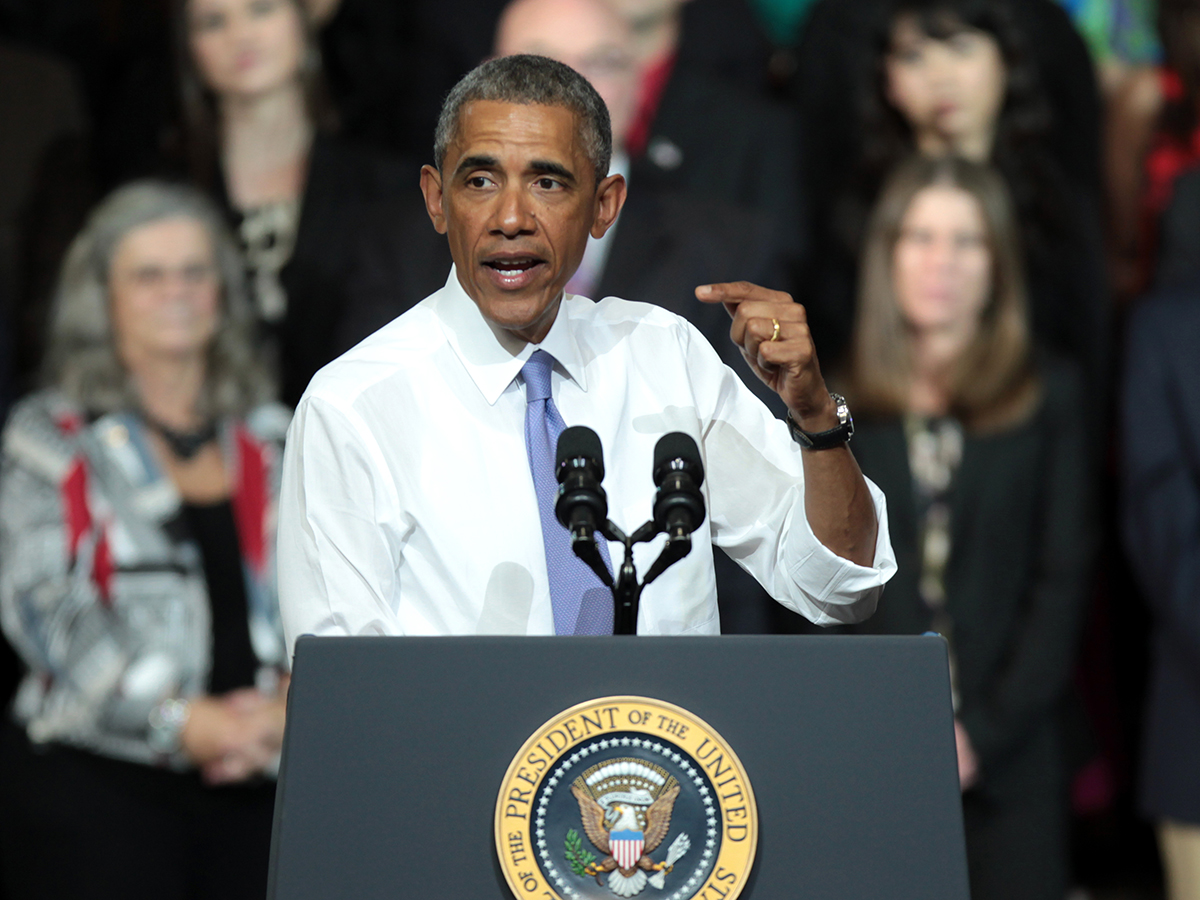
The Obama presidency has often been characterized as an era of change and progress best expressed with his campaign slogan, “Yes We Can!,” as well as his status as the first African-American president of the country. Unfortunately, much of this promised progress fell short as the former president faced opposition on both sides of the political spectrum. Consequently, both CBS News and C-SPAN’s official rankings list Obama in 12th place overall compared to former presidents, and although it is unexpectedly low, the placement is rightfully deserved.
Obama’s presidency consisted of many shining moments that exhibited his strength as an effective leader, most notably with his ability to handle the crisis he inherited, the 2008 recession. Arguably the worst economic crisis since the Great Depression, unemployment rose to almost 10% nationwide. Fortunately, Obama’s response with the immediate passing of the Recovery Act upon entering office began a steady rise in the country’s gross domestic product and led to job growth that continues to this day. In this regard, Obama outshines many of his predecessors as the effectiveness of a leader is marked in their ability to address and solve any crisis given to them, no matter how tough. Of course, Obama’s responses to other crises are rather mixed in reception.
Obama’s legacy is also further marked by the expansion of rights and reforms, including the legalization of same-sex marriage, the Fair Pay Act and increasing enforcement of Title IX. Not to mention, Obama also made great progress in climate change reform by joining the 2016 Paris Climate Accord. To this extent, Obama’s presidency followed through on some of his promises for change which contributes to the positive image that many hold of him.
However, despite the peaks of his presidency highlighting his strengths as a leader, the progress stopped there as he fell to the same conventional problems and decisions commonly seen in politics. What is often considered his crowning achievement, the passage of the Affordable Care Act (ACA) provided health insurance for 20 million previously uncovered Americans. But the ACA, though a monumental reform for healthcare in the country, only led to more problems as premiums increased for private insurance holders, causing millions across the nation to be unable to keep their pre-Obamacare insurance plan. Even with this reform’s implementation decades ago, numerous health crises, especially the COVID-19 pandemic, illustrate that healthcare has hardly been reformed and is in need of a drastic overhaul, such as a universal healthcare system.
President Obama is often criticized for his immigration policy that led to the deportation of nearly 3 million illegal immigrants, compared to 2 million under the Bush presidency. This reveals him to have been the harshest enforcer of immigration laws in American history, a fact that starkly goes against his promise to expand the rights and reforms of the people.
Furthermore, Obama promised to handle the foreign policy mess inherited from President Bush, though failed miserably. Although the assassination of Al-Qaeda leader Osama bin Laden gave the president a much-needed boost in his approval rating, coming a decade after the tragedy of 9/11, the Middle East as a whole suffered from the same political theater of prior presidencies. His initial escalation of the war in Afghanistan and his mishandling of the threat of the Islamic State has led to a tense Middle East as a result of the increased military presence. Additionally, his hands-off approach to the Civil War in Syria and usage of drone strikes led to skirmishes between U.S. allies and a massive refugee crisis. Though he received pressure from both sides, Obama’s ineffectiveness in bringing peace to the region as promised tarnished his chance of achieving foreign policy success.
While many Democrats claim that Obama would have been able to get more done in a less partisan and opposed atmosphere, the fact of the matter is that Obama’s decision-making led to disappointment and the steady decline in his overall approval rating during most of his term.
Obama’s presidency consisted of a variety of actions that established the good, the bad and the ugly of his presidency. Of course, his handling of the 2008 recession, expansion of rights and reforms and overall composure led to the appeal that won over the nation. However, his presidency was still characterized as disappointing for it echoed the lethargic nature of progress in the country. With incoming president Biden, the possibility remains as to whether or not he will fall to the same mistakes as his former ally.







